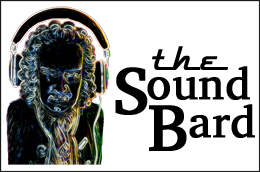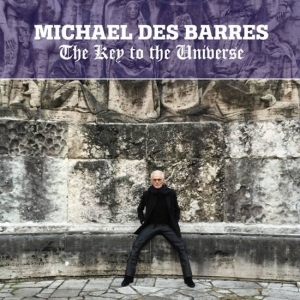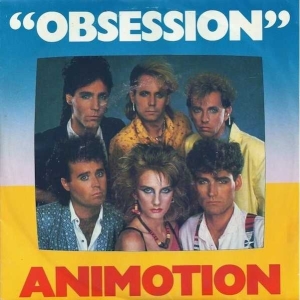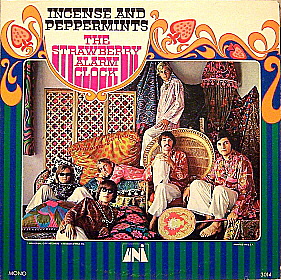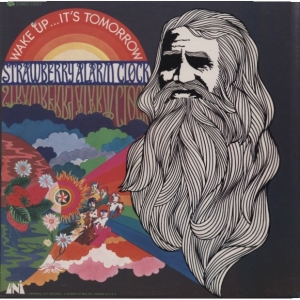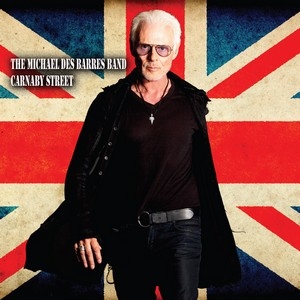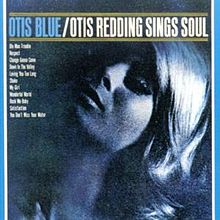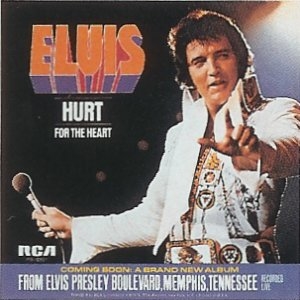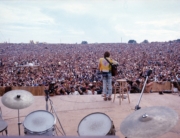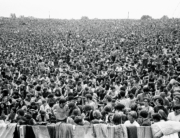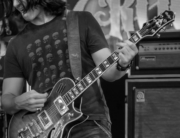BY MIKE METTLER — APRIL 9, 2015
Chances are you know the name Michael Des Barres, but just exactly how most likely depends on your entry point. If you’ve read I’m With the Band: Confessions of a Groupie, then you know him as the ex-husband of Miss Pamela, Pamela Des Barres. If you’re a devout fan of ’70s rock, then you know him as the frontman of cult-fave bands Silverhead and Detective. If you’re a TV aficionado, you know him as Murdoc from MacGyver — and maybe even as Dog, the nattily dressed lead singer of fictional punk band Scum of the Earth from an all-time classic October 1978 episode of WRKP in Cincinnati. And if you’re a dedicated listener of Little Steven’s Underground Garage, Channel 21 on SiriusXM satellite radio, then you’re probably quite riveted to the insights, encyclopedic rock & roll knowledge, and cheeky humor he provides between the tracks that spin during his always exhilarating weekday shift.
While the man’s far-reaching C.V. is indeed impressive, Des Barres is a musician first and foremost, and all of his killer instincts have converged on The Key to the Universe (FOD Records), his strongest and most consistent record, well, ever. The proof is in the deep grooves of tracks like the hard-charging admiration of “Black Sheep,” the alt-rock psychedelia of “Yesterday’s Casanova,” and the funk ’n’ roll of “Supernatural Lovers.” Notes Des Barres, “People go insane for these new songs. It’s so astounding to me, after having not really done anything on this scale in 25 years, that people are responding to them. I think I sound better on this record than I’ve ever sounded.”
Recently, I rang up Des Barres, 67, to discuss the sonic philosophy behind The Key, how to avoid including any “twiddly bits,” and finding one’s own voice as an artist. MDB is a true rock & roll survivor who knows how best to overcome adversity and get it on.
Mike Mettler: Well, first, I have to thank you for giving me The Key to the Universe, because previously, I only had the “Key to the Highway.” So thanks for that.
Michael Des Barres: Dude, you know — things change, and sometimes, the road is just not enough.
Mettler: “Where we’re going, we don’t need roads,” somebody said at some point.
Des Barres: I do love all that imagery, though I try to stay away from it — I mean, the road, the highway, the outlaws, and all that stuff. (chuckles)
Mettler: I’m in New Jersey, and we have plenty of songwriters out here who cover the road thing quite well.
Des Barres: You’re in the fast lanes of those kind of tunes. (chuckles)
Mettler: Anyway, I like that I can take The Key to the Universe with me on any road I travel, though I’m not a fan of MP3 —
Des Barres: Hate it.
Mettler: The subtlety and detail in songs like “Yesterday’s Casanova” or “Supernatural Lovers” just aren’t there in MP3s. And I don’t like missing out on any of those details.
Des Barres: There’s a lot of details in those tunes I wrote with [guitarist] Dani Robinson, who’s going to blow your mind. You must come see us play in the New York area. It’s going to be exciting for you, because it’s everything that you loved then and love now, and it hovers between those two places. It’s truly shocking how rocking, it truly is.
Mettler: I like the sound of that; count me in! Did you have a blueprint for how you wanted the record to sound when you got into the studio? What was your idea?
Des Barres: I’ll try not to be glib, but it’s the best record I ever made. I knew that when I went to Rome and Nigel [Harrison, bassist, a former Silverhead bandmate who was also in Blondie] was there, and Clive [Deamer, drummer, with Robert Plant and Portishead] was there, and Dani Robinson was there, and most importantly, Bob Rose was there. Bob did a solo record for me 30 years ago, and on that record was the Tower of Power horns, Steve Jones, Andy Taylor — a fantastic record, but it absolutely disappeared between the cracks. Somebody Up There Loves Me (1986) came out the year after Live Aid [where MDB sang with Power Station, having just replaced Robert Palmer in the band]. Boom boom. But it just disappeared, man. I was so disconsolate that I took that job on MacGyver and was just in telly for the next 25 years.
To answer your question about the blueprint — I got to Rome, and was trying to get by without any preconceptions at all. I had a stack of lyrics, and we went in and wrote it right then and there — the whole album, in a matter of days. It was the most un-preconceived album I’ve ever made. It was totally thrashy and clean, and to work with Bob Rose, I would wish that on anyone. He just brought out stuff in me that has been long-dormant.
Mettler: I love how you start the album with the Linda Perry-esque vibe and the obsessive nature of the song she wrote, “I Can’t Get You Off My Mind.” Well, you co-wrote a song about obsession a couple decades back, so it fits right in.
Des Barres: Yes, we’ve all been obsessed with something. And that song by Animotion [“Obsession,” penned by Des Barres and Holly Knight] was written about heroin; it wasn’t written about a relationship. I was obsessed, and I knew I had to quit. And I had to write this song. I had to get into a way out of this romantic heroin love affair. (laughs)
Mettler: That’s a testament to your own fortitude and will. Just as you say, the highway, or rather, the universe is littered with people who didn’t make it.
Des Barres: Very, very, very clever. Think about that for a second — because, let’s face it, I’m the last man standing who a) isn’t dead, and b) hasn’t had a facelift. (MM laughs)
Mettler: And we appreciate that. I like the energy and the rawness of this record. Do you think about the way that people listen to music these days? Is either high-resolution audio or vinyl your preferred method of listening?
Des Barres: Well, if it’s from analog, that’s where I’m coming from. I want to hear crackle and hiss. The best thing to do is crack an LP open, look at the sleeve, and listen to the crackle and hiss on vinyl. That would be optimal. But I’m not being naïve or ingenuous — I really love the technology today, and I use it a lot in several forms. If you hear this music in a gym on an iPod on a Stairmaster, that would be great. In fact, I should do an aerobics CD.
Mettler: “Burning in Water” would be a good track for that, just to get your blood pumping.
Des Barres: I love that song. Nigel found that one. He was in A&R at Interscope, working on Steve Jones’ record, and he found that song. Steve never cut it, and he brought it to me and said, “Do this.”
Mettler: “Burning in Water,” “It’s Just a Dream,” “Yesterday’s Casanova” — to me, that’s the sweet spot of the record; the real heart of the album.
Des Barres: I agree! I agree with all of those three choices, completely.
Mettler: Those harmonies on “It’s Just a Dream” put me in the mind of ELO and The Beatles.
Des Barres: Yeah! All that Jeff Lynne shit — I love that! It’s me and Gregory Darling, who is a brilliant singer and composer. We got along really well in terms of melody. He was very, very inspiring.
Mettler: I feel like there’s a whole generation who don’t know Jeff Lynne and what he’s done over the years.
Des Barres: There’s a whole generation who don’t know who The Beatles are.
Mettler: That’s a scary thing, right? That music’s in our blood and our veins, but you can’t think that everybody knows these reference points anymore.
Des Barres: Yeah, exactly. I don’t particularly rail against that — it is what it is. Whatever my inspirations are, I can nuance them into something personal, and that’s what that record is; it’s fucking personal.
“Burning in Water” is a beautiful song, one I’m very proud of. People go insane for these new songs. It’s so astounding to me, after having not really done anything on this scale in 25 years, that people are responding to them. I think I sound better on this record than I’ve ever sounded.
Mettler: It’s more of a timeless production, where maybe some earlier records of yours were “of era,” because that’s how it went in those days. But now, you’re in the prime of your voice. You’ve grown into it.
Des Barres: Thank you, brother. I feel that way. I don’t think I’m impersonating anyone. No one quite sounds like this. It’s not some egocentric reasoning. Bob [Rose] said something to me that was very funny and very interesting. He said, “Michael, it’s a baby free zone.” So you won’t hear me sing, “Hey baby! You’re my baby!” here.
Mettler: I like that! Baby Free Zone. Maybe that’s an album title.
Des Barres: It’s certainly a description of this album. I maybe say it once in context. Really, it’s a metaphor for “Don’t be clumsy, don’t live like everybody else.”
Mettler: To borrow a song title, you don’t want to be “Yesterday’s Casanova,” right?
Des Barres: “Yesterday’s Casanova” is fucking awesome. That’s where I’m going. And the next thing will be so heavy — the heaviest. Meanwhile, this band is so good, and so loud. And that’s what I want. I want to be a loud three-piece rock band.
Mettler: I really love that triply section and the dreamy organ on “Yesterday’s Casanova.” Who did that?
Des Barres: That’s Mike Rowe, from Noel Gallagher’s band. He flew in from London, and just blew everybody’s mind with what he’s playing. That sound is filling it out, and not with what Steve Jones would say is “twiddly bits.” (chuckles) There are no twiddly bits!
Mettler: It gave me a Strawberry Alarm Clock vibe, for just a moment.
Des Barres: I love Strawberry Alarm Clock! Absolutely underrated; totally fantastic musicians.
Mettler: I bought Incense and Peppermints (1967) and Wake Up It’s Tomorrow (1968) on vinyl, back when I was in college.
Des Barres: Are you into Rhinoceros at all?
Mettler: Yeah — you guys have at least one or two of their tracks on The Underground Garage playlist, right?
Des Barres: They were incredible. They were put together in 1967 by Elektra — these wonderful Laurel Canyon musicians who didn’t know each other. It was an experiment. Didn’t work, in terms of sales, but it certainly worked creatively. I always thought of them as forerunners of the more complex prog music to come.
Mettler: I can see that. Growing up overseas like you did, you got into a lot of American music.
Des Barres: Well, yeah, at boarding school, a friend of mine had Sonny Boy Williamson, and I lost my mind. That’s how it began for all of us who grew up in England in the ’60s — it was all sort of blues-based and Motown. American music was what turned us on. And then it was dressed up in velvet and mutated into something else.
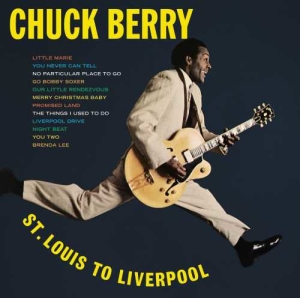 Mettler: I know Chuck Berry still holds a place in your heart.
Mettler: I know Chuck Berry still holds a place in your heart.
Des Barres: He always will. He’s my liver and Little Richard is my pancreas, and so on. It’s something that’s part of you and never burns away. Even though those inspirations are so defined and pure and real, you have to express yourself in your own way. It becomes a part of your DNA, but I think that ultimately, if you do have anything to say, say it with no sense of influence and just use your imagination.
Mettler: That’s a good way of putting it. We all have the DNA building blocks of what’s come before, but it’s been up to people like you, Zeppelin, the Stones, and all those guys to take those things and make them your own. You can feel the sprinkling in the beds of those tracks, but it’s gotta become something new; otherwise, it’s jut a retread.
Des Barres: You’re absolutely very articulate about it. “New,” I think, just means “you.” New is great, but it’s you doing this thing. There’s this wonderful speech Bob Dylan gave at MusiCares [on February 6, 2015, at the Los Angeles Convention Center]. MusiCares isa terrific organization that really helps people, and I’ve worked with them because I’m 30-odd years sober. He said [affects nasal Dylan voice], “Its not about authentic. It’s about you. You gotta tell the truth.” So great, so Dylan. You know, you gotta tell the fucking truth about certain things.
Mettler: You sure do. And you, as a songwriter, have been very autobiographical throughout your career, from Silverhead to the Detective days up through now. That has to be a conscious decision: “I’m going to talk about myself.”
Des Barres: Well, I think so. One hears so many things about, “She was a rock and roll goddess.” I’m not interested in journalism; I’m interested in diaries. There’s a big fucking difference. My point being, you’ve gotta be yourself. I write about myself all of the time, and I always will. When I was young and in Silverhead, we’d been to America, and it was so astonishing that one sort of had to address it, because I was in love with Elvis, Walt Whitman, and Coca Cola — and you want to write about what you saw. You see these girls wearing three sequins, and you want to write about that — “16 and Savaged” [the title track from Silverhead’s 1973 release]. But then you start thinking about exorcising demons, and maybe sharing joy, about my own experiences. (chuckles)
Mettler: How did you get clean? What was the secret to picking yourself up and saying, “I’m not going to be a casualty”?
Des Barres: Insanity. I just suddenly woke up and said, “Fuck this. This is for children, and I’m not a child.’ I wanted to be able to express myself. My whole thing about self-expression is, you can’t fully express yourself if you don’t know who your “self” is, and if it’s disguised with heroin, then it’s just crap. It’s lies, it’s deceit. You’re deceiving the gift that you’ve been given, just absolutely denying the fact that the talent is divine, and you’re pissing on it. That sucks, so that you drop that, which is drugs, and you try to get to something that’s true, and real. Trust that you’re ok, and that you’re enough. You don’t need to loosen yourself with heroin and booze. “It loosens me up, man.” Yeah, and then you’ll be six feet under, unfortunately. You’ll be loose when you’re dead. The thing is for me, I did that in ’81, probably before you were born.
Mettler: Actually, I was born in ’67. I was born in the fall of the Summer of Love is usually how I put it.
Des Barres: That’s beautiful, just beautiful. Well, I was already cast with the spell of free love at the time. (chuckles)
Mettler: I would have loved to have visited Carnaby Street, to borrow a title, back then, so thanks for helping us out there too. [The MDB Band released Carnaby Street in 2012.]
Des Barres: It’s been an amazing journey, I’m so grateful. But I do know that I’ve become more “right” with the songs, really. I fell right in love with rock because it was fast and it was new and it had a validity, and in many ways, I’ve become better.
Mettler: And there’s no reason to stop being creative, at any age. Why stop putting out albums? Did anyone tell John Updike to stop writing books when he was 70? Why is it any different for rock music? Why do you have to stop being creative because of your age?
Des Barres: I love you right now! I will always use that metaphor — but I use Picasso, while you use Updike. Not only did he keep painting until he was 90 or something, but he kept on creating.
Mettler: If you’re an artist, it’s the evolution of you, your craft, and your creativity. Age is irrelevant. The creative part is what’s interesting.
Des Barres: You’ve just got to take care of yourself and love yourself enough to want to stay cool. And “cool” is not cigarettes and turned-up collars — “cool” is joy, and compassion. You know, someone said to me, “Well, what is the key to the universe?” And I responded with the glib answer — which is, “E major.” (both laugh)
Mettler: Well, it couldn’t be a minor chord…
Des Barres: E major, or A major. I have a whole number of ways of describing what “the key” is, and one of the keys is the biggest lie you can ever tell is the lie you tell yourself. That was a liberating “key.” The other keys are that we are compassionate, we are the same, we are together, there are no secrets, there is no difference between us, we are of the same being. If we only embrace that, we wouldn’t be divided — to divide is not divine, you know. (chuckles) It would be a peaceful world, and that’s what I’m all about. That sounds so fucking pretentious, but yeah, I believe in a connectivity. That’s why I believe in the Net. That’s why I believe in technology.
Mettler: Was there one record that inspired you the most as a kid? One album that you consider a talisman for you?
Des Barres: Yes, there was a talisman, and that would be Otis Blue, by Otis Redding (1965). That was the one that really captured it. Obviously, my hormones had been stirred by Elvis and Gene Vincent, but when I heard Otis, I went “Oh my God, this is so incredibly emotional and so (pauses) soulful.” Yeah, I wanted to be him. I tried to mutate into a black man from Georgia.
Otis Blue was the talisman. And of course [Elvis Presley’s] “Jailhouse Rock” (1957) was the first 78 I ever got, and it was absolutely worn out within a week — like my first marriage. (both laugh) It was a fantastic song that just killed me.
Mettler: And that’s what good music does — it makes you literally stop everything, and then that becomes everything for you.
Des Barres: We went to Vegas on our honeymoon to see Elvis. That was our honeymoon, in 1977. It was Detective, and [people from their label] Swan Song, and it was all fucked up — but Miss Pamela never was. Robert [Plant] is an even bigger Elvis fanatic than I am. We met James Burton, Elvis’ guitar player, in the bar at the MGM, and it just went from there; I couldn’t even tell you the story. It was an amazing thing to see The King after having listened to him as a child. And then going to see him in Vegas with Miss Pamela and the groupies — there was something biblical about that, Mike.
Mettler: I can only imagine. I hate people not seeing Elvis for who he was.
Des Barres: He never lost his voice. Elvis came out, and his belt was bigger than I was. He was singing, “I’m so hurt,” which was a song [“Hurt,” cut in 1976] that is an achingly beautiful ballad. That voice, man. The hairs on my arms are standing up right now, thinking about The King singing that.
Mettler: Did you get a chance to interact with Elvis at all?
Des Barres: Miss Pamela got a call while we were in the tiny apartment we had in Hollywood, and the guy said [affects Southern drawl], “The King would like y’all to come up and see him.” “What about my boyfriend?” “He can absolutely not do that. He’d like to see you.” “I can’t do that. I love Michael.” So, basically, she loved me more than Elvis. (both laugh)
Mettler: That’s quite an honor. If you were to put an Elvis song in your set right now, which one would you do?
Des Barres: Well, it would be “Baby, Let’s Play House” or “Good Rockin’ Tonight.” My maid could play “Good Rockin’ Tonight” and the people would be screaming. There are certain songs by Elvis that move me. When we did “Suspicious Minds” in Chequered Past, me and Steve [Jones], he just killed it. (Sings), “We can’t go on.” I would play guitar, and he would get up there and quiver. (chuckles) People would go mad. “What the fuck is going on? Keep going!”
Mettler: I love that. And I also love that we get to have your voice on The Underground Garage every weekday now. It’s my #1 go-to channel on satellite radio, especially when I get into the car.
Des Barres: Oh, that’s great to hear. Of course, it’s mine too. It’s great music, and Stevie [Steven Van Zandt] is a force of nature, man.
Mettler: He sure is. To me, you’re the perfect intersection between garage and punk. You fit perfectly into what goes on there.
Des Barres: He is an amazing man. He chooses judiciously who he has on his channels, which is something that he’s very passionate about. Every song is chosen by him — with a few recommendations, perhaps, but he has a really good ethic when it comes to getting DJs. With Kim’s passing [Kim Fowley], he’s so loyal to him that he’s just repeating him.
Mettler: I’m happy that we still get to hear him on the weekends. In a way, it’s so very fitting to Kim’s legacy that he’s still there. [Fowley, a longtime rock impresario and producer of bands ranging from to The Hollywood Argyles (“Alley Oop”) to The Runaways, passed away at age 75 on January 15, 2015. In his honor, Van Zandt decided to continue to air repeats of Fowley’s shows in his traditional weekend slot on The Underground Garage.]
Des Barres: That, in a nutshell, describes Stevie Van Zandt right there. He’s such a pure, witty, charming man with an encyclopedic knowledge of rock & roll — like I have. And that’s why I’m there. (chuckles)
Mettler: Are you able to make any of your own choices, like, “Hey, I’d love to play track X?” Does that ever happen?
Des Barres: You know what’s so interesting about that question, Mike, is that I don’t want to change anything. I love the playlist. And in a way, it introduces me to things I hadn’t heard before.
In terms of choosing — yes I do. If I do something about the Village scene, hypothetically, I’ll play a Dylan song. If I talk about Robert Johnson, I will play a Robert Johnson song. If I talk about Gary Glitter — well, God forbid, given his thing —
Mettler: Right, that one’s with an asterisk.
Des Barres: The key for me anyway, is being surprised and genuinely enthusiastic about a song I haven’t heard and being ecstatic about something that I love. There may be 10 songs I don’t know and love, and 10 songs that I already love. Either way, everybody wins.
Mettler: I like hearing stuff I don’t know, like a track will come on by Stupidity [a Swedish garage-rock band]. I’ll like it, and then make a note to go buy it. Whether it’s new or old, if it’s something that I like, I’m going to go get it.
Des Barres: Me too. Me too! I learn about it, and I give it back. I’m entertained by it, I’m influenced by it, and inspired by it. For these last few years, I’ve been really excited and enthusiastic about it. It’s a diminishing breed, and Steven Van Zandt keeps it alive. I love [The Mighty] Manfred. He’s so cool. They all are — [Handsome Dick] Manitoba. They’re all great. Such a bunch of wonderful personalities. I’m so lucky, so blessed. I just love doing it. And I do it from the road if I’m away making a movie, or in Rome, like I did it there when I was making the album. I just get the [Focusrite] Forte and plug it into the laptop, and I shoot it [the show] to New York.
Mettler: Let’s wrap it up by talking about performing live. How long a set are you doing now?
Des Barres: There are two sets. There’s a 45-minute set, which is essentially the album, and then there’s an hour-and-a-half set, which would have “White Light White Heat,” “I Don’t Need No Doctor,” “Get It On,” “More Than Your Mountain Holds” from Silverhead [from 1973’s 16 and Savaged], and I encore it with “My Generation.” It’s got a real thread. There’s a story.
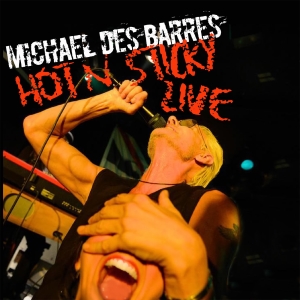 Mettler: Some of those songs are on Hot N Sticky Live (2012).
Mettler: Some of those songs are on Hot N Sticky Live (2012).
Des Barres: That’s right. Those I just put out myself because I could, and I can. I’ve been lucky in my career. Being on FOD Records, with the distribution that they have, is a whole other thing. For the first time, I have infrastructure. I’ve got people. I have a team, God forbid! (chuckles) It’s all about getting the song to radio, and I’ve never had that. Never. Had. That. Never had that in Detective, never had that anywhere.
Putting a show together is so fun now, because there’s a lot to choose from, and a lot of songs that make a lot of sense. There is a commonality in all the themes of the stuff I’ve written — which sounds so pompous, and I don’t want to sound pompous. I’m just a lucky bastard. Behind me I’ve got a guitar, bass, and drums, and that’s all I need.
Mettler: And a microphone.
Des Barres: No, I’m really loud. (cackles) And that’s a good place to end this conversation! (both laugh)
Tags: 16 and Savaged, 78 rpm, Andy Taylor, Animotion, CD, Chequered Past, Clive Deamer, Dani Robinson, Detective, Elvis, Gregory Darling, Hot N Sticky Live, Jailhouse Rock, Kim Fowley, Led Zeppelin, Little Steven, Live Aid, LP, Michael Des Barres, Miss Pamela, Nigel Harrison, Obsession, Otis Blue, Otis Redding, Pamela Des Barres, Power Station, Rhinoceros, Robert Rose, Silverhead, Somebody Up There Loves Me, Steve Jones, Steven Van Zandt, Strawberry Alarm Clock, Swan Song, The Key to the Universe, Underground Garage